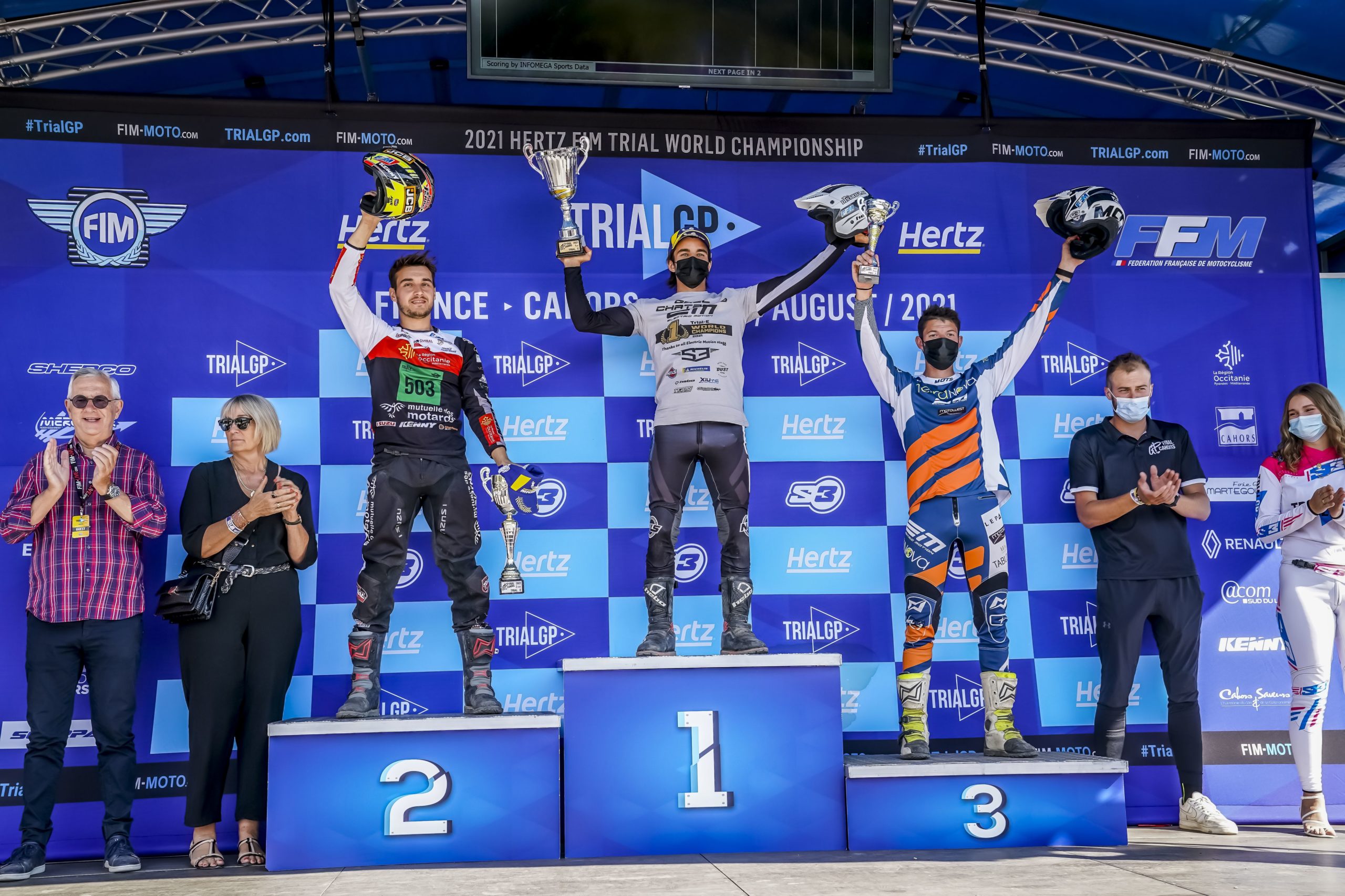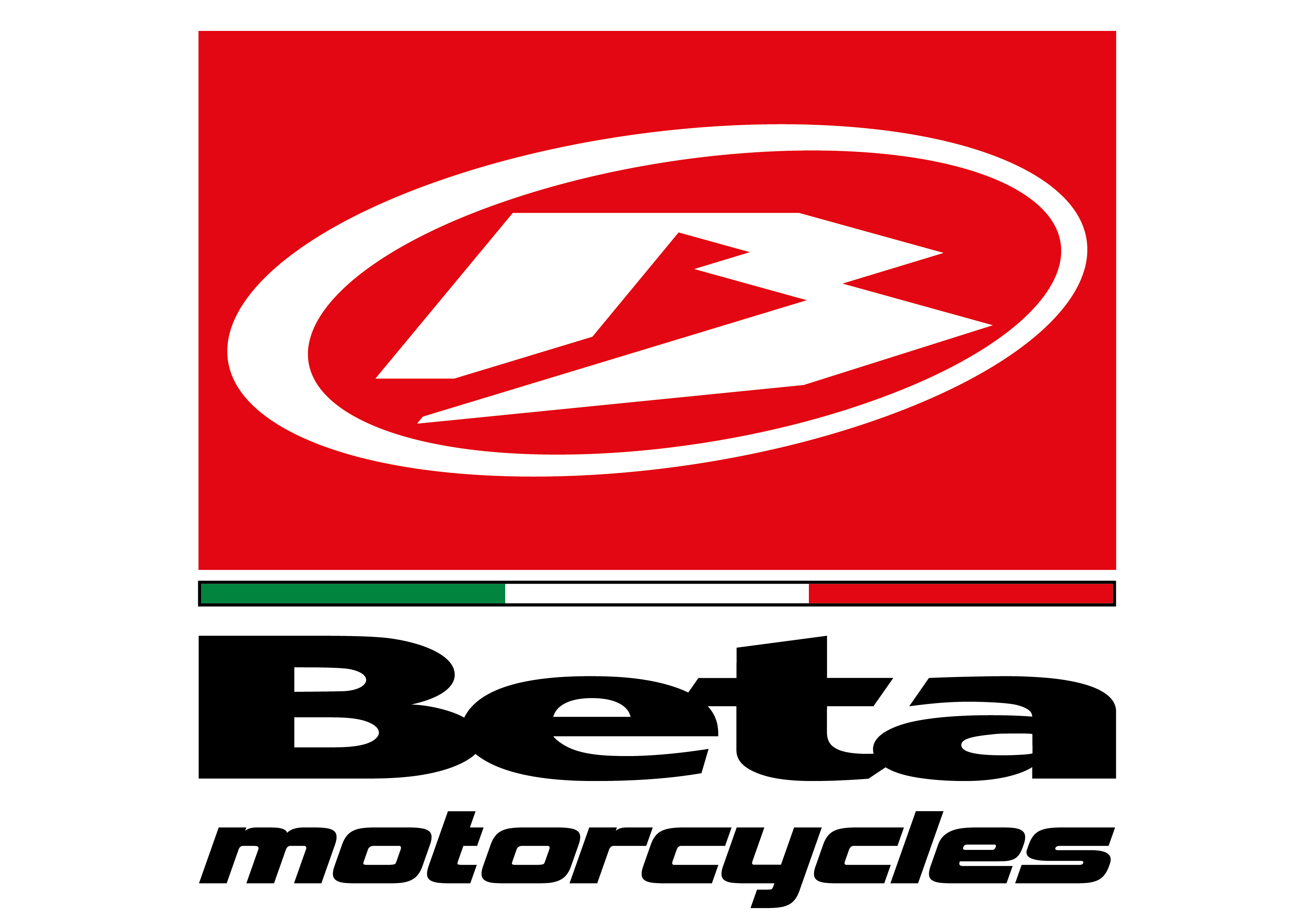Gael Chatagno gave himself an early present when three days before his 25th birthday he piloted his Electric Motion to the 2021 Hertz FIM Trial World Championship Trial-E title on home ground at Cahors in France.
Always considered a rising star – he was the Trial125 champion in 2014 and two years later won a Trial2 round – before injuries and academic studies combined to slow his progress, Chatagno found a fresh motivation by switching to Trial-E.
After losing out on the Trial-E title on a tie-break to Spanish legend Albert Cabestany last season, Chatagno went one better in 2021 and enjoyed a clean sweep of all four points-paying days to finally clinch the crown.
He’s deep-thinking and articulate so, naturally, we wanted to find out more about what makes the man from Marseille tick – and what he feels could lie in the future for battery-powered bikes.
TrialGP: Congratulations on your Trial-E title – how does it feel to be the champion?
Gael: “I’m very happy to get this title. We won all the rounds of the championship which was our objective but it wasn’t always easy, especially the last round in Cahors where I won with only a one-point lead. These results reward all my personal work and that of my team and my entourage so we are very happy.”
TrialGP: You had a lot of success on conventional bikes in Trial125 and Trial2 – why the switch to Trial-E?
Gael: “To tell the truth, I had a lot of problems during my last years in the Trial2 world championship with a lot of injuries and a lack of training due to my studies which took more and more time.
“Even if I had some good results, I didn’t have much means and motivation to get back to my best form and then I saw that Electric Motion was releasing a new model in 2019, the new Epure Race. I called them because I thought it could be a good project for me working on a new bike with new ambitions. I think I made the right choice!”
TrialGP: How frustrating was it to miss out so narrowly to Albert Cabestany in 2020?
Gael: “At the beginning I didn’t really think about going for the Trial-E title, I just wanted to do my best, give my best and try to put the pressure on Albert. After some difficult years, I wanted to prove to myself what I was capable of and I managed to do some good things throughout the championship, in particular by winning the two races in Isola 2000.
“After the last round there was obviously some frustration but I won’t have a bad memory of it because this championship allowed me to regain confidence in myself and to prove to myself that I can be competitive.”
TrialGP: Were you surprised by how dominant you were this year?
Gael: “No, because winning all the rounds was my goal. However, it’s always easier to say than to do, especially as Julien Perret fought well throughout the championship.”
TrialGP: How have you had to adapt your style for an electric bike?
Gael: “An electric bike is almost like a combustion bike. The clutch, engine speed and coordination of movements remain the central elements of the riding. Some things change – such as the power curves which arrive more quickly than on a combustion bike or the absence of the gearbox to which you have to adapt – but, after a good month of training, you will find the same sensations as on a combustion bike. There is still work to be done to match the performance of the [combustion] bikes but we are not idle!”
TrialGP: What do you see in the future for the Trial-E class?
Gael: “It is becoming more and more difficult to find places to train, to meet and to bring new riders to trial. The development of electric models, which are much better perceived by the authorities and other users, seems to be a good solution. In any case, even if other manufacturers present themselves next year, I hope that the FIM will authorise [electric motorcycles] to ride in other categories – I am thinking of Trial2 in the short term and one day surely in TrialGP. It will be the best way to make the bike progress.”
TrialGP: Do you think an electric bike will ever be competitive in TrialGP?
Gael: “Yes, I think so. I don’t know about other electric bikes or current projects – and for EM there is still a lot of work to do – but considering the speed at which it’s evolving and the margin of progress it has left, I would say between three and five years.”
Round five of the 2021 Hertz FIM Trial World Championship takes place this coming weekend when the TrialGP and Trial2 competitors join forces with the TrialGP Women and Trial2 Women classes at the Spanish TrialGP at Pobladura de las Regueras.
For regular updates and live results check out our social media platforms on Facebook, Twitter and Instagram – just search for TrialGP.











